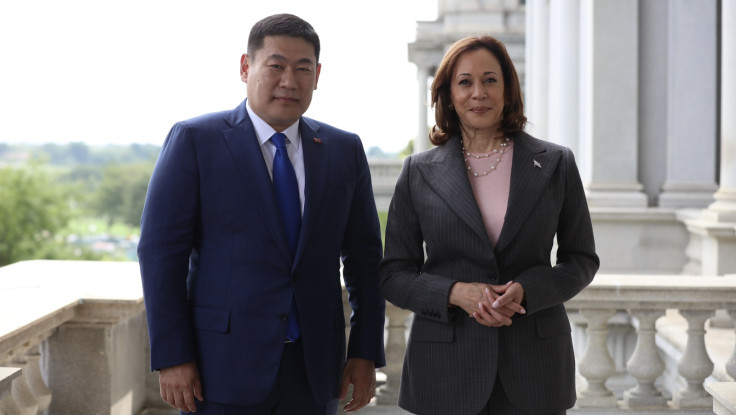Meet Mongolia: The East Asian Country Proudly Declaring Itself 'Open For Business'
Historically overlooked as an investment destination, Mongolia is increasingly moving into the sights of global business leaders and decisions makers attracted to its strong growth outlook and ambitious government reform and development programme.
Mining is the literal bedrock of the Mongolian economy, contributing around a quarter of the country's GDP and 89% of its exports. With the climate transition driving massive global demand for critical minerals, Mongolia has laid out a bold strategy to capitalise upon its vast natural reserves of copper, coal, gold, and iron in new ways, to continue a strong bounce-back from COVID and support moves towards Net Zero.
In March, the Government announced with Rio Tinto – currently the largest foreign investor in Mongolia – the commencement of underground production at the Oyu Tolgoi copper mine. Not only will this make Mongolia a top four global copper producer by 2030, it underlines the confidence that major private sector investors increasingly have in forging long-term partnerships with the country.

Building on current success, Mongolia is looking at how it can move its economy 'from mining to mind', tapping into the high growth areas of the global economy to support long-term, sustainable growth. Launched in 2020, the Vision 2050 plan is the Government's long-term development strategy that aims to make Mongolia a leading country in its region by the middle of the century. Mongolia's strong recovery from the pandemic – with growth recorded at 4.8% last year and forecast to reach 6% in 2023 – is being bolstered by the New Recovery Policy (NRP), the first 10-year phase of Vision 2050 which focuses on short and medium-term steps to diversify Mongolia's economy and tackle long-term barriers to growth. The NRP alone represents a USD 49 billion investment opportunity in Mongolia.
To deliver on its ambitions, the Government is focusing on how it can strike investment partnerships with both nation state partners and private sector investors, and increasingly looking outside its immediate neighbourhood for new opportunities.
Hot on the heels of the announcement with Rio Tinto, in recent months there has been progress on a prospective 1 billion Euro deal to export uranium to France, following President Macron's State Visit to Mongolia in May, and in recent days the Mongolian Prime Minister L. Oyun-Erdene agreed a series of deals to strengthen economic co-operation during his first official visit to the United States.
Having been a long-standing supporter of Mongolia's transition to democracy, the United States is now a key strategic 'third neighbour' partner to the country. New agreements were signed during the visit to support further tourism, trade and investment flows between the United States and Mongolia, including an Air Transport Agreement that paves the way for direct flights to commence next year.
The visit was also an opportunity to enhance co-operation with private sector partners, with the announcement of a new deal with Google to enhance digital skills among Mongolia's teachers and young people, which includes providing 20,000 Chromebooks to schools.
Seizing new opportunities overseas goes hand in hand with the Government's domestic reform programme, a key aim of which is increasing the attractiveness of the country as an inward investment destination.
There are forthcoming changes to the country's Draft Investment Law to remove restrictions on investment and simplify tax, regulation, disputes, and visa requirements.
Having declared 2023 as the 'Year of Anti-Corruption', the Government is also taking action across the board to tackle this long-standing issue, with legislation including action to protect whistleblowers, seize illicit funds held overseas and clamp down on corruption in the political system. Mongolia was recently recognised as the first country in the Asia-Pacific to comply with all the recommendations made to it by the Financial Action Task Force, demonstrating the work the country is doing in the fight against terrorist financing.
From the creative industries to the digital sector, and from transport to green energy, the opportunities for future growth and for new investment in Mongolia are vast. The country's digital transformation is being aided by a new partnership with Starlink to provide better internet access in rural areas, whilst new incentives for international film studios to come and shoot in Mongolia could see the country's stunning landscapes featured in the next blockbuster hitting the screens in your local cinema.
With an ambitious plan for growth, and a population where almost two thirds are under the age of 35, Mongolia has the energy, creativity and ambition to make a real mark in a rapidly changing world economy and geopolitical environment. Long known for its famous history, unique culture and striking scenery, Mongolia's message to the world in 2023 is clear: we're open for business.





















